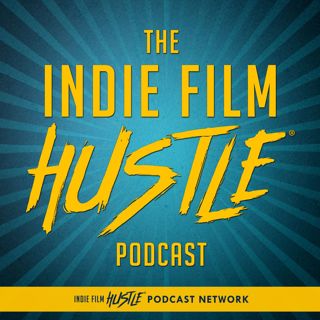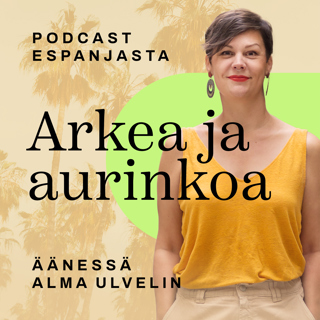
IFH 119: Ask Alex - E&O Insurance, Music Rights and Copyright Oh My!
E&O Insurance, Music Rights, and Copyright Oh My!So after last week's huge success of the "Ask Alex" segment, I decided to bring it back this week. The IFH Tribe filled my inbox with tons of amazing questions, which I'll try to cover in future episodes.If you have a question that you would like for me to answer on a future episode of the podcast just email them to ifhsubmissions@gmail.com and I'll do my best to answer them. This week we have a bunch of question from tribe member Jake from Australia.Here are the questions I answered in this week's podcast:What happens if I'm shooting guerrilla style and accidentally catch a sign in the background or someone is wearing a brand logo in a shot? What is E&O Insurance (Errors and Ommissions) exactly? How does E&O Insurance work? Where are the best deals for E&O Insurance? What do you do if you want to use Licensed Music? What things might arise if using a track (or tracks)? What can copyrighting your film cost you? Become a supporter of this podcast: https://www.spreaker.com/podcast/indie-film-hustle-a-filmmaking-podcast--2664729/support.
2 Joulu 201622min

IFH 118: Kevin Smith, John Milius & Directing John Malkovich with Zak Knutson
This week we have Zak Knutson on the show. Zak is a producer/writer/director/editor based out of Los Angeles. In 2005 he co-founded Chop Shop Entertainment, a filmed entertainment company that supplies added value materials to all of the major studios, and a large number of independents. Chop Shop Entertainment has supplied more movie based content for the internet than any other company in the industry.The last Chop Shop project was Milius, a documentary on Hollywood rebel John Milius. The film opened at the SXSW Film Festival in 2013. The film also played at the Telluride Film Festival and the BFI London Film Festival. In 2014 Knutson directed Marvel 75: From Pulp to Pop for Marvel and ABC Television.Zak Knutson directed "Shock the World" a documentary about Jesse Ventura's path from professional wrestler to governor of Minnesota. Shock the World premiered April 2015 at the Tribeca/ESPN Sports Film Festival.His latest film Supercon starring Maggie Grace, Clancy Brown, Ryan Kwanten, Mike Epps and John Malkovich. Here's the logline:A rag-tag group of former TV stars and comic book artists, who make their living working at conventions, decide to steal the loot from a crooked promoter and an overbearing former TV icon.Enjoy my entertaining and funny interview with Zak Knutson.Become a supporter of this podcast: https://www.spreaker.com/podcast/indie-film-hustle-a-filmmaking-podcast--2664729/support.
29 Marras 20161h 55min

IFH 117: Ask Alex - I'm Making My First Feature Film…HELP!
So this episode is going to be fun. I'm starting a new segment I call "Ask Alex." Yes, I know it's very creative = ) I asked the IFH Tribe to submit questions to ifhsubmissions@gmail.com and I'll do my best to answer them. This week we have a bunch of question from tribe member Kenny from Sweden. Here are the question I answer in the podcast.Which is the best type of camera to buy for your first feature that is cheap? (DSLR or anyone else. Also including lenses or where you can use one lens?)Which is the most important person to hire, a DP or a sound guy for a film? I´ve heard both. Some say good footage and others good sound.If you don´t have English as your first language should you make your films in your own language since it is your mother tongue or in English(If you know how to speak of course) to reach a bigger market since more people understands and speak English? Which format is best to use for the finished film? (I know you had a podcast about this but I want to hear your personal opinion)Which part of post cost most money on of following things, sound, colorist or foley. I think it is in that order. Is that correct? How much of the budget should you save for post-production in your opinion?Should you do this and if so the best ways to send an edited film over the internet for sound editing and colorization and maybe name a few companies that do this for small independent films. Would you be interested in doing that? What do you say about moving to LA to be a filmmaker if you come from another country? (You had a podcast about that but I am thinking based on an international perspective from a foreigner)Become a supporter of this podcast: https://www.spreaker.com/podcast/indie-film-hustle-a-filmmaking-podcast--2664729/support.
24 Marras 201623min

IFH 116: Fast and Cheap: Lessons Learned for the No-Budget Feature
On this week's episode, I go way to a simpler time, the 90s, and discuss the lessons we can learn from some filmmaking legends. I'll discuss films by Robert Rodriguez, Christopher Nolan, and Richard Linklater to break down and learn the techniques they used to make awesome, No-Budget Feature films with limited resources."In no-budget filmmaking, your limitations are your guide."If you take note of what filmmakers did before you, you can jump start your filmmaking career. Enjoy!Become a supporter of this podcast: https://www.spreaker.com/podcast/indie-film-hustle-a-filmmaking-podcast--2664729/support.
22 Marras 201624min

IFH 115: How to Shoot Video That Doesn’t Suck with Steve Stockman
How to Shoot Video That Doesn’t Suck with Steve StockmanIn this week’s episode, we have Steve Stockman. Steve is an author/writer/director/producer at Custom Productions, Inc. in Los Angeles. He’s created and Executive Produced tv series Brew Dogs for the new Esquire Network, Dogs of War for A&E, Devils Ride for Discovery Channel and $24 in 24 for Food Network; plus worked on over 200 commercials, music videos, and web series.He also wrote and directed a film called Two Weeks starring legendary Oscar® Winning Actress Sally Field.His book, How to Shoot Video that Doesn’t Suck, is now in its 6th printing from Workman Publishing. It’s based on a course he’s been teaching to kids for the last 14 years, but adults understand it as well.“Like two years of film school in 248 pages.” – Steven Pressfield, Author of The War of Art and The Legend of Bagger VanceIt’s not technical—it doesn’t matter whether you’re shooting RED or iPhone. It’s about how to shoot video that’s entertaining, effective—and that actually gets watched. Enjoy my conservation with Steve Stockman.Right click here to download the MP3LINKS AND RESOURCES MENTIONED IN THIS EPISODEBUY HIS BOOK HERE – How to Shoot Video that Doesn’t Suckwww.stevestockman.comCustom Productions, IncTwo WeeksDevils RideBrew DogsThis is Meg – Feature FilmBecome a supporter of this podcast: https://www.spreaker.com/podcast/indie-film-hustle-a-filmmaking-podcast--2664729/support.
16 Marras 201654min

IFH 114: The Six Stages of Character Development with Michael Hauge
The Six Stages of Character Development with Michael HaugeThis week we have a returning guest, screenwriting guru Michael Hauge. On this episode, he discussed The Six Stages Character Development. A very eye opening episode. Check it out. Right click here to download the MP3These videos on screenplay structure are from his best selling online course: Story and Screenwriting Blueprint - The Hero's Two Journeys.In more than 4½ hours of lecture, discussion and Q&A, Michael Hauge, author of Writing Screenplays That Sell and Selling Your Story in 60 Seconds: The Guaranteed Way to Get Your Screenplay or Novel Read; and Christopher Vogler, story analyst and author of The Writer’s Journey: Mythic Structure For Writers, unite to reveal the essential principles of plot structure, character arc, myth and transformation.Click below to download more videos.Become a supporter of this podcast: https://www.spreaker.com/podcast/indie-film-hustle-a-filmmaking-podcast--2664729/support.
10 Marras 201623min

IFH 113: Post Production Process - Understand It or Suffer the Consequences
Post Production Process: Understand It or Suffer the ConsequencesFilmmaking is a long process and is divided into three stages. The first stage is pre-production stage, the second one is production, and the last one is post-production stage. In this podcast episode, I go into each of the following steps and add a few bonus ones as well. Become a supporter of this podcast: https://www.spreaker.com/podcast/indie-film-hustle-a-filmmaking-podcast--2664729/support.
8 Marras 201627min

IFH 112: Stanley Kubrick: The Rare 1966 Interview of a 37 Year Old Kubrick
This is a special edition of the IFH Podcast. We have for you a rare interview by Stanley Kubrick. A 37-year-old Kubrick sits down and speaks with Jeremy Bernstein. It's a remarkable look into the beginnings of the filmmaking master. Enjoy!Become a supporter of this podcast: https://www.spreaker.com/podcast/indie-film-hustle-a-filmmaking-podcast--2664729/support.
4 Marras 20161h 25min





















